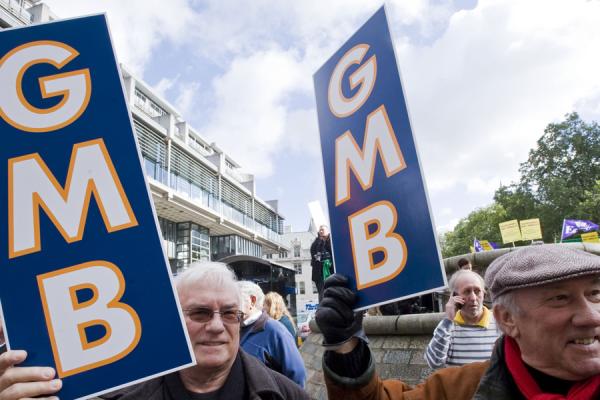GMB call on 103,000 public sector workers in Dorset and Wiltshire to vote for an end to public sector pay cap

GMB, the union for public sector workers, calls on the 103,000 public sector workers, employed as health workers, catering assistants, cleaners, teaching assistants, ambulance staff, residential care workers, council workers, police and civil servants to vote for an end to the public sector pay cap.
Pay in the public sector has been subject to a pay cap since 2010. The level of average earnings in the sector is now down 6.4% since 2007 in real terms taking inflation into account.
The area in the region with the largest number of public sector workers is Wiltshire with 32,652. Next is Swindon with 17,539, Bournemouth with 12,610, Poole with 12,070 and West Dorset with 11,791.
The number of public sector employees for all unitary authorities and districts in Dorset and Wiltshire are set out in the table below.
| Business Register and Employment Survey – 2015 | ||
| Public sector employees | ||
| Great Britain | 5,235,830 | |
| England | 4,316,534 | |
| South West | 413,408 | |
| 1 | Wiltshire | 32,652 |
| 2 | Swindon | 17,539 |
| 3 | Bournemouth | 12,610 |
| 4 | Poole | 12,070 |
| 5 | West Dorset | 11,791 |
| 6 | East Dorset | 4,301 |
| 7 | North Dorset | 3,514 |
| 8 | Weymouth and Portland | 3,220 |
| 9 | Purbeck | 3,038 |
| 10 | Christchurch | 2,139 |
Paul Maloney, GMB Southern Regional Secretary, said “The pay of public sector workers in Dorset and Wiltshire has been subjected to a pay cap since 2010 and earnings are down in real terms by 6.4% since 2007.
“As the economy nears full employment and as pay begins to recover in other sectors of the economy, staff shortages will begin to appear in parts of the public sector and in parts of the area.
“This is already the case in some areas like paramedics, 999 call handlers, nurses, midwives, adult social care staff, social workers, refuse collectors, teachers, teaching assistants and school caretakers. Schools are now more heavily reliant on support staff to fill gaps in teacher shortages with little or no recognition for the extra duties and responsibilities they’re taking on.
“Those providing social care for the elderly and most vulnerable are increasingly dependent on benefits as pay in real terms declines and they carry the burden of our overstretched social care system.
“The 103,000 public sector workers in the area have an opportunity in the forthcoming general election to use their vote and put an end to the pay cap.
“GMB is calling on them to vote Labour as it is a Labour Party manifesto commitment to end the public sector pay cap – because public sector workers deserve a pay rise after years of falling wages.”
Contact: Paul Maloney on 0790 1343839 or Michelle Gordon on 07866 369 259
Notes to editors
1) The Labour Party manifesto 2017 states:
End the Public Sector Pay Cap – because public sector workers deserve a pay rise after years of falling wages.
Roll out maximum pay ratios of 20:1 in the public sector and in companies bidding for public contracts – because it cannot be right that wages at the top keep rising while everyone else’s stagnates.
2) Source: UK Business Register and Employment Survey 2015, Office for National Statistics
Public sector employees are those in: public corporations / nationalised bodies, central government and local authorities.
Information about the way ONS reaches classification decisions, and explanatory articles setting out the rationale for some of the more complicated classification decisions can be found on the ONS website:http://webarchive.nationalarchives.gov.uk/20160105160709/http://www.ons.gov.uk/ons/guide-method/classifications/na-classifications/index.html



